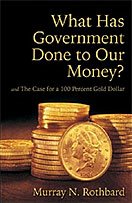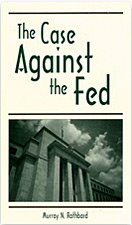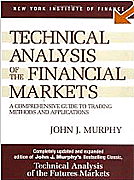Attacking Iran: The market impact of a surprise Israeli strike on its nuclear facilities
The financial markets are assuming that an Israeli and/or
US attack on Iran is unlikely. However, bellicose rhetoric
from Israel and an imminent build-up of US forces in the
Gulf suggest that they could be in for a shock…
An imminent attack would seem unlikely, given the weakness of the Israeli and US administrations, and hopes for regime change in Iran. However, Iran’s threats to Israel’s existence, and fears that it will acquire nuclear weapons within two years, suggest that President Bush may sanction action before he leaves office at the end of 2008.
However, within a month the US will have two aircraft carrier battle groups and a new expeditionary Marine strike force in the Persian Gulf, which might provide a shield for an Israeli bombing of Iran’s facilities. Israel reportedly has the weaponry to at least delay the nuclear programme.
A key imponderable is the extent of Iranian retaliation. Although missile and terrorist attacks on Israel and US interests would be likely, the threat of massive US retaliation, regional conflict and long-term damage to its political and commercial interests might limit Iran’s response.
The financial market impact would be dramatic, even if Iranian retaliation were restrained. Risk assets have risen strongly over the past three years, and a surprise attack on Iran would catch out markets pricing in little volatility. The US dollar, government bond yields, stock markets and industrial raw materials would all fall. Oil and gold prices, could spike, boosting related equities, debt and currencies. Other credit spreads would widen, and the unwinding of carry trades would see funding currencies benefit, although Japan, dependent on Iranian oil, might lag others such as the Swiss franc. A prime casualty might be the Turkish lira, which could fall 10-20%. The duration of these effects would depend on the extent of Iranian retaliation: a constrained response would make them short-lived.
...to read the entire ING Bank compelling analysis on a Iran war impact (in Adobe 'pdf' format) please CLICK HERE.
US attack on Iran is unlikely. However, bellicose rhetoric
from Israel and an imminent build-up of US forces in the
Gulf suggest that they could be in for a shock…
Attacking Iran
The market impact of a surprise Israeli strike on its nuclear facilities
The market impact of a surprise Israeli strike on its nuclear facilities
An imminent attack would seem unlikely, given the weakness of the Israeli and US administrations, and hopes for regime change in Iran. However, Iran’s threats to Israel’s existence, and fears that it will acquire nuclear weapons within two years, suggest that President Bush may sanction action before he leaves office at the end of 2008.
However, within a month the US will have two aircraft carrier battle groups and a new expeditionary Marine strike force in the Persian Gulf, which might provide a shield for an Israeli bombing of Iran’s facilities. Israel reportedly has the weaponry to at least delay the nuclear programme.
A key imponderable is the extent of Iranian retaliation. Although missile and terrorist attacks on Israel and US interests would be likely, the threat of massive US retaliation, regional conflict and long-term damage to its political and commercial interests might limit Iran’s response.
The financial market impact would be dramatic, even if Iranian retaliation were restrained. Risk assets have risen strongly over the past three years, and a surprise attack on Iran would catch out markets pricing in little volatility. The US dollar, government bond yields, stock markets and industrial raw materials would all fall. Oil and gold prices, could spike, boosting related equities, debt and currencies. Other credit spreads would widen, and the unwinding of carry trades would see funding currencies benefit, although Japan, dependent on Iranian oil, might lag others such as the Swiss franc. A prime casualty might be the Turkish lira, which could fall 10-20%. The duration of these effects would depend on the extent of Iranian retaliation: a constrained response would make them short-lived.
...to read the entire ING Bank compelling analysis on a Iran war impact (in Adobe 'pdf' format) please CLICK HERE.















![[Most Recent Quotes from www.kitco.com] [Most Recent Quotes from www.kitco.com]](http://www.kitco.com/images/live/t24_au_en_usoz_6.gif)
![[Most Recent Quotes from www.kitco.com] [Most Recent Quotes from www.kitco.com]](http://www.kitco.com/images/live/au_go_0030_ny.gif)
![[Most Recent Quotes from www.kitco.com] [Most Recent Quotes from www.kitco.com]](http://www.kitco.com/images/live/au_go_0365_ny.gif)
![[Most Recent Quotes from www.kitco.com] [Most Recent Quotes from www.kitco.com]](http://kitconet.com/charts/metals/silver/t24_ag_en_usoz_4.gif)

















0 ΣΧΟΛΙΑ (COMMENTS):
Post a Comment
<< Home